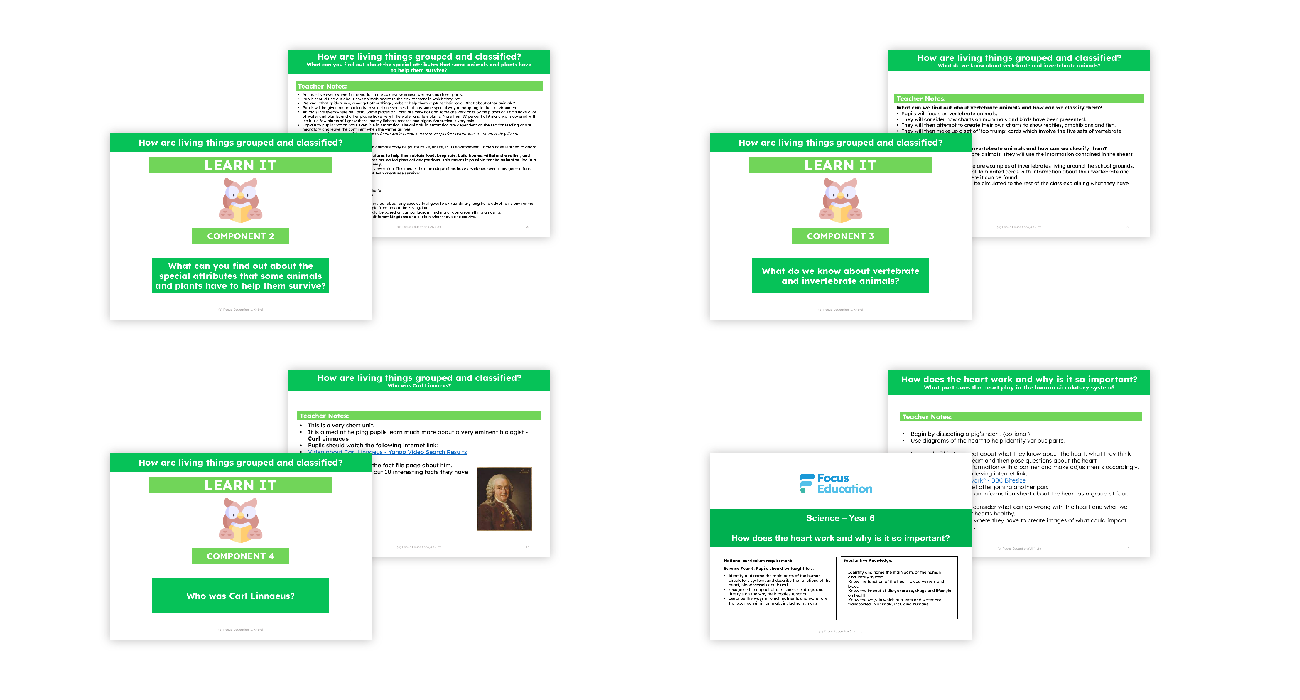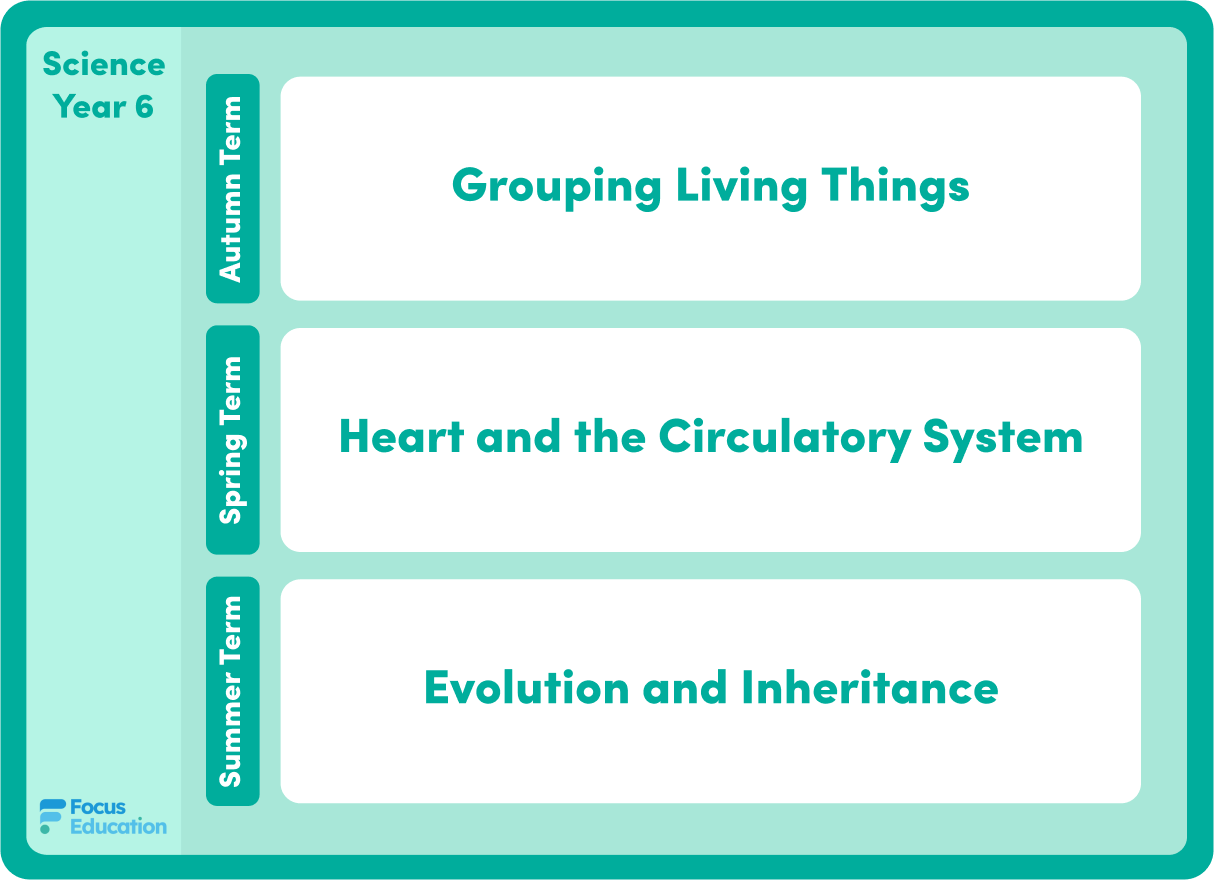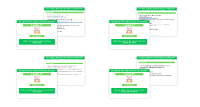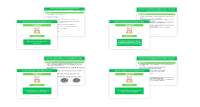Grouping Living Things
Unit
Science
Year 6
Focus Education
Science Unit Description
Editable presentation
Group work
Active
Discussion based learning
Year 6 Science unit, Grouping Living Things from Focus Education. This unit uses an enquiry-approach methodology, lessons are built around a central question in order to build pupil curiosity and motivate learning. Grouping Living Things has been constructed in accordance with the National Curriculum.
Unit contents
Overview Documents
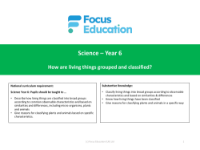
Long-term overview
Resource
Science
Y6
The Long-term overview for the unit Grouping Living Things from Focus Education
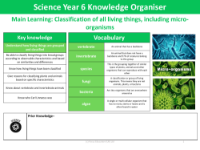
Knowledge organiser
Resource
Science
Y6
The Knowledge organiser for the unit Grouping Living Things from Focus Education
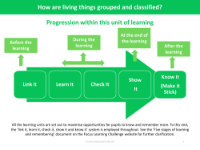
Progression pedagogy
Resource
Science
Y6
The Progression pedagogy for the unit Grouping Living Things from Focus Education
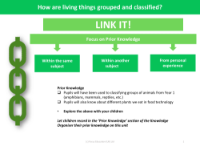
Link it! Prior knowledge
Resource
Science
Y6
Link it! Prior knowledge is the set of initial activities that should be used to introduce the unit Grouping Living Things from Focus Education, it will allow pupils to link the upcoming learning to their existing skills and knowledge
Lessons
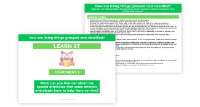
1. What do we know about the five kingdoms: animals, plants, monera, protista and fungi?
Lesson
Science
Y6
Year 6 Science lesson from the unit Grouping Living Things. This lesson uses an enquiry-approach method, and will facilitate students answering the question 'What do we know about the five kingdoms: animals, plants, Monera, Protista and fungi? '
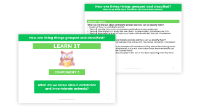
2. What can you find out about the special attributes that some animals and plants have to help them survive?
Lesson
Science
Y6
Year 6 Science lesson from the unit Grouping Living Things. This lesson uses an enquiry-approach method, and will facilitate students answering the question 'What can you find out about the special attributes that some animals and plants have to help them survive?'
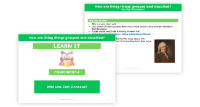
3. What do we know about vertebrate and invertebrate animals?
Lesson
Science
Y6
Year 6 Science lesson from the unit Grouping Living Things. This lesson uses an enquiry-approach method, and will facilitate students answering the question 'What do we know about vertebrate and invertebrate animals?'
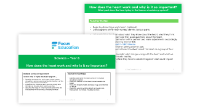
4. Who was Carl Linnaeus?
Lesson
Science
Y6
Year 6 Science lesson from the unit Grouping Living Things. This lesson uses an enquiry-approach method, and will facilitate students answering the question 'Who was Carl Linnaeus?'
Assessment for Learning Resources
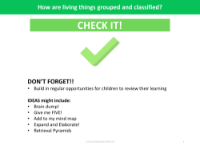
Check it!
Resource
Science
Y6
Check it! is a set of assessment for learning tasks and assessments that should be used to check pupils' understanding of the learning during the course of the unit Grouping Living Things from Focus Education.
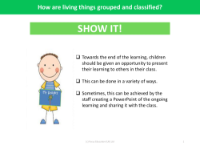
Show it! Group presentation
Resource
Science
Y6
Show it! Group presentation is a group task that should be used to solidify student learning and should be run after the teaching of the lessons contained in the unit Grouping Living Things from Focus Education
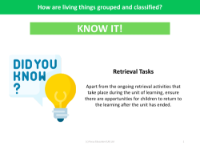
Know it!
Resource
Science
Y6
'Know it! - Grouping Living Things - Year 6' is a resource for assessing pupil knowledge at the end of the Year 6 unit, Grouping Living Things
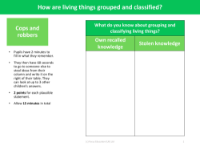
Cops and robbers - What do you know about grouping and classifying living things?
Resource
Science
Y6
'Cops and robbers - What do you know about grouping and classifying living things?' is a resource for assessing pupil knowledge at the end of the Year 6 unit, Grouping Living Things
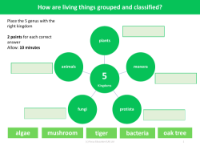
Match up - Classifying living things
Resource
Science
Y6
'Match up - Classifying living things' is a resource for assessing pupil knowledge at the end of the Year 6 unit, Grouping Living Things
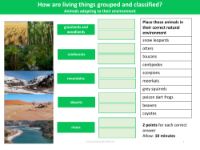
Match up - Animals and their environments
Resource
Science
Y6
'Match up - Animals and their environments' is a resource for assessing pupil knowledge at the end of the Year 6 unit, Grouping Living Things

Word sorts - Classifying living things
Resource
Science
Y6
'Word sorts - Classifying living things' is a resource for assessing pupil knowledge at the end of the Year 6 unit, Grouping Living Things
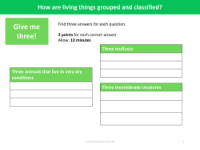
Give me 3 - Classifying living things
Resource
Science
Y6
'Give me 3 - Classifying living things' is a resource for assessing pupil knowledge at the end of the Year 6 unit, Grouping Living Things
Unit contents
Overview Documents

Long-term overview
Resource
Science
Y6
The Long-term overview for the unit Grouping Living Things from Focus Education

Knowledge organiser
Resource
Science
Y6
The Knowledge organiser for the unit Grouping Living Things from Focus Education

Progression pedagogy
Resource
Science
Y6
The Progression pedagogy for the unit Grouping Living Things from Focus Education

Link it! Prior knowledge
Resource
Science
Y6
Link it! Prior knowledge is the set of initial activities that should be used to introduce the unit Grouping Living Things from Focus Education, it will allow pupils to link the upcoming learning to their existing skills and knowledge
Lessons

1. What do we know about the five kingdoms: animals, plants, monera, protista and fungi?
Lesson
Science
Y6
Year 6 Science lesson from the unit Grouping Living Things. This lesson uses an enquiry-approach method, and will facilitate students answering the question 'What do we know about the five kingdoms: animals, plants, Monera, Protista and fungi? '

2. What can you find out about the special attributes that some animals and plants have to help them survive?
Lesson
Science
Y6
Year 6 Science lesson from the unit Grouping Living Things. This lesson uses an enquiry-approach method, and will facilitate students answering the question 'What can you find out about the special attributes that some animals and plants have to help them survive?'

3. What do we know about vertebrate and invertebrate animals?
Lesson
Science
Y6
Year 6 Science lesson from the unit Grouping Living Things. This lesson uses an enquiry-approach method, and will facilitate students answering the question 'What do we know about vertebrate and invertebrate animals?'

4. Who was Carl Linnaeus?
Lesson
Science
Y6
Year 6 Science lesson from the unit Grouping Living Things. This lesson uses an enquiry-approach method, and will facilitate students answering the question 'Who was Carl Linnaeus?'
Assessment for Learning Resources

Check it!
Resource
Science
Y6
Check it! is a set of assessment for learning tasks and assessments that should be used to check pupils' understanding of the learning during the course of the unit Grouping Living Things from Focus Education.

Show it! Group presentation
Resource
Science
Y6
Show it! Group presentation is a group task that should be used to solidify student learning and should be run after the teaching of the lessons contained in the unit Grouping Living Things from Focus Education

Know it!
Resource
Science
Y6
'Know it! - Grouping Living Things - Year 6' is a resource for assessing pupil knowledge at the end of the Year 6 unit, Grouping Living Things

Cops and robbers - What do you know about grouping and classifying living things?
Resource
Science
Y6
'Cops and robbers - What do you know about grouping and classifying living things?' is a resource for assessing pupil knowledge at the end of the Year 6 unit, Grouping Living Things

Match up - Classifying living things
Resource
Science
Y6
'Match up - Classifying living things' is a resource for assessing pupil knowledge at the end of the Year 6 unit, Grouping Living Things

Match up - Animals and their environments
Resource
Science
Y6
'Match up - Animals and their environments' is a resource for assessing pupil knowledge at the end of the Year 6 unit, Grouping Living Things

Word sorts - Classifying living things
Resource
Science
Y6
'Word sorts - Classifying living things' is a resource for assessing pupil knowledge at the end of the Year 6 unit, Grouping Living Things

Give me 3 - Classifying living things
Resource
Science
Y6
'Give me 3 - Classifying living things' is a resource for assessing pupil knowledge at the end of the Year 6 unit, Grouping Living Things
Explore other content in this scheme
Part of a scheme by Focus Education
Other units in this scheme
This website uses cookies to enhance the user experience.
To get more information about these cookies check our
Hey! It looks like you're in the United States.
Stay on the UK site
Switch to the US site

